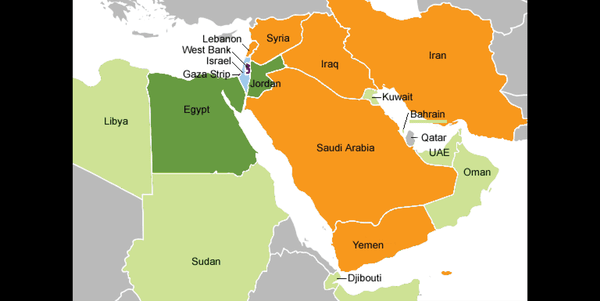Pirates, Breslovers, and ‘Green Leafers’
January 30, 2015A number of tiny fringe parties have attempted to enter the 2015 elections race once again this year, despite the struggle for mainstream parties to pass the newly-raised Knesset threshold.
A full 3.25% of the population’s vote is required to elect a party into the 20th Knesset, a change which has prompted the formation of several joint lists, leading the Arab parties to unite, Hatnua to run with Labor, and Eli Yishai’s Ha’am Itanu to form a joint list with Otzma Yehudit.
Despite this, Israel’s smaller and quirkier parties have vowed to try in any event to break into national politics by submitting their own lists to the Central Elections Commission on Thursday.
The Aleh Yarok (“Green Leaf”) party for the legalization of marijuana is a familiar face in Israeli politics, trying every year to take a stand on their sole party platform and even garnering 44,000 (1.15%) of Israel’s votes in the previous elections. But now, according to Walla! News, it has set its sights higher: gaining the four seats necessary to break the threshold – with the 160,000 shekels ($40,670) the Israeli public has donated to the 2015 campaign.
Oren Leibovich, Green Leaf Party chairman, expressed optimism about the chances of entering the Knesset.
“The campaign came on short notice,” he told the news agency. “We will of course pass the threshold this year – even though many parties have dropped out because of it – because of the widespread disgust with the political system.”
He said that his party will focus on the most important issue on the public agenda: the use of cannabis.
“We are not a small party; we have a platform and our candidates are most deserving than any other party,” he charged. “Promises of peace [with the Palestinian Authority] and annexation [of Judea-Samaria] or dismantling the Israel Lands Administration will probably not be realized – not during the next Knesset or the one after that.”
“We, however, demand a practicable and effective means to relieve the masses and solve the greatest social injustice today – persecution of cannabis consumers,” he added.
Setting sail for the Knesset?
Other parties serve an equally niche voter pool – some of whom are not even in Israel.
Ohad Shem Tov, Chairman of the Pirates party, told Walla! from his home base in New York that most of his party’s supporters are not even in Israel. Shem Tov, who is completing his doctorate’s thesis in the US, has stated that the party is managing the campaign from abroad, but noted that if the party is elected, most would return to Israel.
However, being elected is not even the point, Shem Tov said.
“We’re not running to gain votes; we’re running to have our voices heard,” the party chairman stated. The Pirates party, one in a network of small parties with the same name and platform throughout Europe, aims to lift heavy copyright laws against internet piracy and advocates “the freedom to share and copy.”
If elected, it would introduce a direct approach to the democratic process as well.
“We will offer web software that allows all citizens to participate in the decision-making of all the members of the Knesset, so that they will vote in the Knesset by the will of the public, not just once every four years,” he added. “We basically represent in real time what the public wants.”
The Pirates party clashed before with Yesh Atid during the 2013 elections, after it claimed Yair Lapid had stolen votes from the fringe campaign by using a similar acronym on its ballot. ‘Pirates’ was represented by the Hebrew letter peh (פ), whereas Yesh Atid was represented by peh and heh (פה).
The other Kulanu
Another fringe party has clashed with another mainstream party during this round of elections: the “Kulanu Haverim – Na Nach” (literally, ‘We’re all friends’ and a Breslov Hasidic phrase) party, which represents the Breslov hassidic sect.
Kulanu Haverim was one of the first parties to register during this round of elections, before Moshe Kahlon named his newly-formed Kulanu party.
The Breslov party has already complained that Kahlon will steal votes from their campaign, and have stated that they have received threatening phone calls from callers looking for Kahlon.
But party representatives say that, regardless, the public should vote for the party – representative of a sect known by its books on Emunah, faith, and members of the sect who try to encourage happiness by dancing in the middle of Israeli streets and public plazas – because it has a diverse party platform based on Rabbi Nachman’s teachings.
“We believe that if we express ourselves, we have a lot to offer,” Sharon Kanfo, Kulanu Haverim leader, stated. “We have a social platform, an economic platform, a security platform; we want to help the people of Israel through the advice of Rabbi Nachman.” During the 2013 elections, the party gained just 2,500 votes.
Other parties have made headlines even more than the niche groups – and in at least one case, one registered party is virtually unknown.
The B’Zhutan haredi women’s party made a media splash earlier this month after its three candidates debuted the campaign in direct response to the exclusion of women from mainstream haredi parties, and is perhaps the most well-known of the smaller parties this election.
Yet another party – the third to register on the list – remains a mystery; the Democratic party, calling itself “the Zionist party which fulfills social and democratic values” and vows to change the electoral system, how the MKs and President are chosen, and form a constitution.
The party’s founder is listed as Ma’ayan Mishali – but virtually nothing else is known about the group. Oddly, there is no party website or Facebook page available for the campaign.
Similar posts
-

Israel Is Held To A Higher Standard Than Any Country
April 25, 2024In the intricate tapestry of global affairs, one nation stands out for enduring scrutiny and condem...
-

Israel Has The Most Moral Military In The World
April 10, 2024In the heart of a region often riddled with conflict, Israel stands out not only for its technologi...
-

The Resilience of the Israeli People
April 2, 2024Visitors from around the world have seen Hamas's October 7th Massacre's destruction in southern Isr...
-

Israel: Small Size, Big Impact
March 21, 2024Nestled along the eastern edge of the Mediterranean Sea, Israel is a land of immense historical sig...
-

Israelis Are Fighting For Their Lives
February 21, 2024By Jonathan S. Tobin The world looks a lot different from Kibbutz Kfar Aza than it does in the U...
-

Over 2 Million Arabs Live In Israel
January 23, 2024In the complex landscape of the Middle East, where diverse cultures and identities intersect, Israe...
-

'Fauda' Star Idan Amedi Injured Fighting in Gaza
January 8, 2024Despite the severity of his injuries, Amedi's father assured Israeli news channels that his life is...
-

Israel Is A Great Country To Live In
December 28, 2023Nestled at the crossroads of the Middle East, Israel stands as a vibrant and dynamic nation, offeri...



















